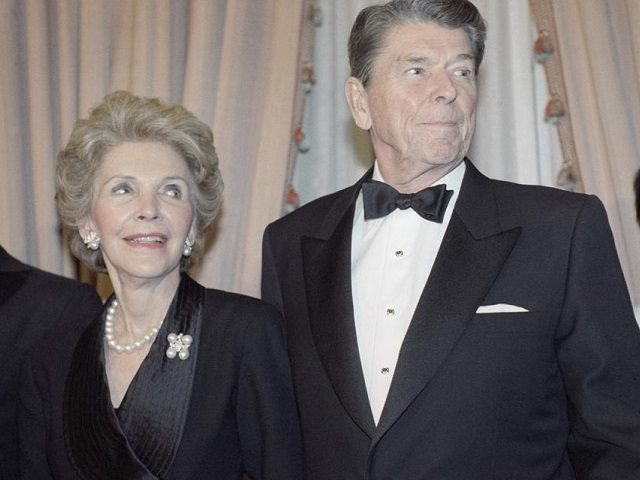
AP Photo/Bebeto Matthews
Nancy Reagan never would have considered herself part of the Washington “establishment.” For one thing, she hadn’t lived in this town in decades. More importantly, she had a constituency of one: her beloved husband. And if the DC establishment didn’t like it (they often didn’t) that was too damn bad.Still it’s hard to miss the symbolism of Mrs. Reagan’s passing—she died Sunday at age 94—coinciding with the final collapse of the Republican ruling class as GOP voters over the weekend anointed one of two antiestablishment outsiders, Donald Trump and, as their likely new standard bearer. With her death and the eclipsing of the GOP establishment, there is a palpable sense that something in the Grand Old Party—to which Nancy and Ronald Reagan devoted decades of their lives—has been lost forever.
There is more than a little irony to that outcome. Through the last decades of her life, Nancy Reagan tenderly kept her husband’s legacy alive, and his presidency became the altar upon which every GOP aspirant to the White House pledged fealty. But it didn’t play out that way when she actually was in the White House.Amid the many well-deserved tributes to the former First Lady, it does no injustice to Mrs. Reagan’s memory to recall that she was an unpopular figure in Washington. To the contrary such an acknowledgment puts her accomplishments in proper perspective.Indeed, the Reagans arrived in Washington in the winter of 1981 as insurgents themselves. A number of Republican leaders had worked against Reagan’s nomination, preferring predictable moderates like George H. W. Bush or seasoned political tacticians such as Senators Howard Baker or Bob Dole. The California governor was an outspoken outsider who preferred a good horse, cowboy hats, and denim to the meaningless blather of DC salons. He said impolitic things like Washington was the problem. Many, including the man he defeated, Jimmy Carter, intimated that he might start a nuclear war.
You can read the rest of the story here.
